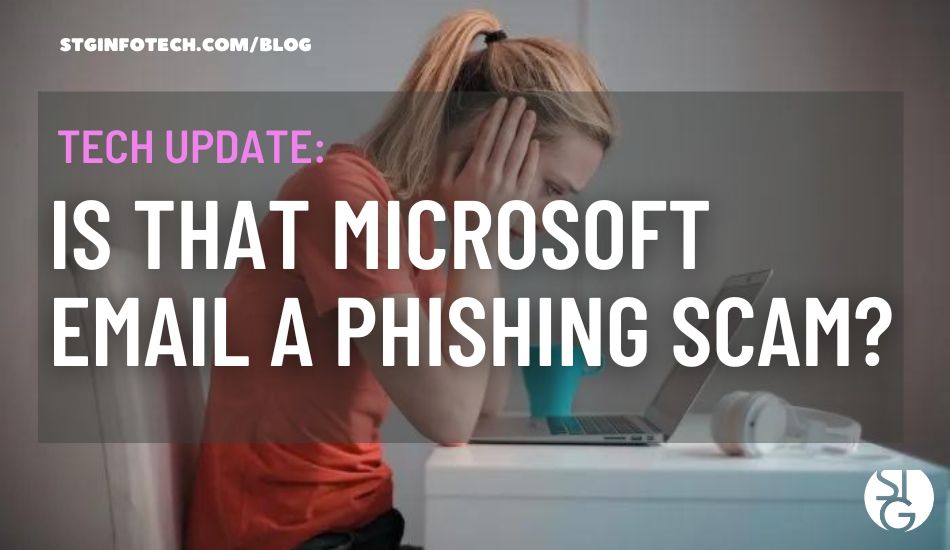These days, there seems to be a never-ending stream of threats lurking in our email inboxes. It can be hard to sift through which are real and which are just cyberattacks waiting to happen. Is that email from Microsoft a phishing scam? Let’s find out.
Microsoft is a brand we’ve come to know and trust, but recently there have been a lot of imitators when it comes to phishing attacks. This means a cybercriminal sends you an email containing a malicious link or file. They’re trying to steal your data.
While Microsoft is not at fault for this, you and your employees need to be on high alert for anything that seems suspicious.
In the second quarter of 2023, Microsoft jumped to the top spot of brands imitated by cybercriminals. Accounting for 23% of brand phishing attempts.
This puts them in front of Google in second place (19.5%), and Apple in third (5.2%). More than half of the recorded brand imitator attacks are attributed to these three tech giants collectively.
What does this mean for your company?
Despite an obvious increase in fake emails targeting millions of Windows and Microsoft 365 worldwide, careful observers can help protect you from fraud and identity theft.
While most of the imitated brands usually change from quarter to quarter, cybercriminals don’t typically change their tactics.
They use legitimate-looking logos, colors, and fonts. Phishing scams commonly use URLs or domains that resemble real websites. But if you look closely you can usually see the typos and errors, which are classic indicators of a phishing attack.
The recent line of attacks claims to be unusual Microsoft account sign-in activity on your account. Then it will direct you to a malicious link. These links are intended to steal everything from login credentials to payment details.
And while tech companies are often the target for scams, many cybercriminals are not targeting financial services like online banking, gift cards, and online shopping. In Q2 2023, Wells Fargo and Amazon tied for 5th place with 4.2% of brand phishing attempts.
What can you do to secure your business?
You’ll be surprised at how simple the solution is. When it comes to phishing, slowing down, paying attention, and analyzing. Verify the message wording, domains, and URLs for mistakes.
Get in touch if you’d like help informing your employees of these risks.
Find out more about what’s new in the tech world by following our blog!
Click here to schedule a free 15-minute meeting with Stan Kats, our Founder, and Chief Technologist.
STG IT Consulting Group proudly provides IT Services in Greater Los Angeles and the surrounding areas for all your IT needs.





